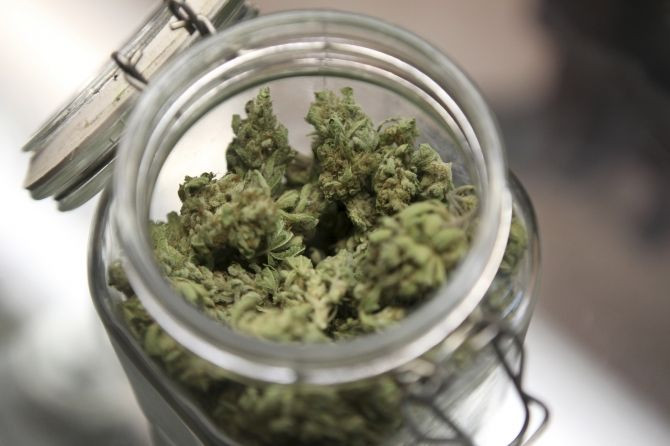Brain Scans Show How Marijuana Relieves Pain

Researchers from University of Oxford have found that cannabis relieves pain by making it more bearable, rather than actually reducing it. Researchers say that some people might benefit more from using cannabis as a pain reliever due to certain small changes in their brains.
"Cannabis does not seem to act like a conventional pain medicine. Some people respond really well, others not at all, or even poorly. Brain imaging shows little reduction in the brain regions that code for the sensation of pain, which is what we tend to see with drugs like opiates. Instead cannabis appears to mainly affect the emotional reaction to pain in a highly variable way," said Dr Michael Lee of Oxford University's Centre for Functional Magnetic Resonance Imaging of the Brain (FMRIB).
The study was a small investigation on the effects of oral tablet of THC. Researchers wanted to know how the cannabis in the tablet worked on people who were experiencing pain.
The study involved 12 men whose MRI scans were carried out at the FMRIB center in Oxford. To induce pain, researchers rubbed a cream that had capsaicin in it. Capsaicin is derived from chili and produces a burning sensation.
Each participant had four MRI scans so that pain could be assessed for all four combinations; THC or placebo, and pain-inducing cream or placebo cream.
"The participants were asked to report the intensity and unpleasantness of the pain: how much it burned and how much it bothered them. We found that with THC, on average people didn't report any change in the burn, but the pain bothered them less," said Dr Lee.
The brain scans showed that there was lower activity in the part of the brain called the anterior mid-cingulate cortex when the participants reported being bothered with pain. This brain region is present in the deep part of the brain and is involved in many functions that include emotional aspects of pain.
The study also showed that there were changes in right amygdala when the participant was given THC for the pain. This region of the brain, too, is involved with reacting to pain.
Researchers also found that people with strong connections between right amydala and a part of the cortex called the primary sensorimotor area responded better to treatment with THC.
The study showed that there may be a way to use brain scans to predict who will benefit more from cannabis in treating pain, researchers say.
"We may in future be able to predict who will respond to cannabis, but we would need to do studies in patients with chronic pain over longer time periods," said Dr Lee.
The study is published in the journal Pain.
Published by Medicaldaily.com



























